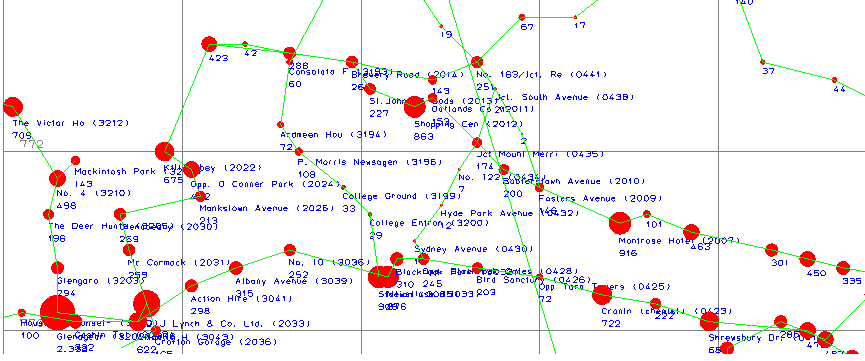

This course teaches network design and timetable planning skills for public transport. As part of this process, we emphasise the need to thoroughly understand the local pattern of passenger demand, from which you can design services which have
- cost-effective, efficient networks and timetables;
- networks which can be easily understood by (and easily sold to) your customers; and
- 'secure' networks which leave few unserved opportunities for competitors.
The course itself is built around practical exercises, drawn together by a series of discussions of the various subjects. There are four sections, each dealing with a distinct stage of the design process.
A thorough understanding of the local patterns of travel demand is essential for successful planning. The course starts by considering the relative merits of the different sources of data which are available in companies and local authorities - from manual surveys of various types, from electronic ticket machines, or from hand-held data capture devices - and how this can be presented in a meaningful and comprehensible way. The designers are presented with a practical example of such data which provides demand information for the subsequent re-planning exercise.
Good network design calls for the ability to match demand and supply, and for good scheduling and timetabling skills. These issues are covered in lectures and brought out in two major exercises. The first is a simple idealised case, the second a real-world example.
Once the participants have designed a new network, then this is evaluated using our BusDriver network analysis and testing software. The output from these shows the expected patronage and revenue for the new network, by service and by geographical area. The participants use this output to refine their designs and try alternative approaches. The participants are given a straightforward financial target. The consequences of alternative financial targets, of changes to operating costs, and of wider social objectives are covered in lectures.
In the final sessions of the course, the processes of implementation and of selling the new network are covered. The delegates make a presentation of their designs to the rest of the group. This provides an opportunity to consider widely-differing approaches that can be adopted, and compare the relative strengths and weaknesses.
The next courses are:
- 2026 March 16-20
- 2026 November 30 - December 4
For bookings or further details, e-mail: courses@qv-associates.com
Last edited 2025 Dec 11